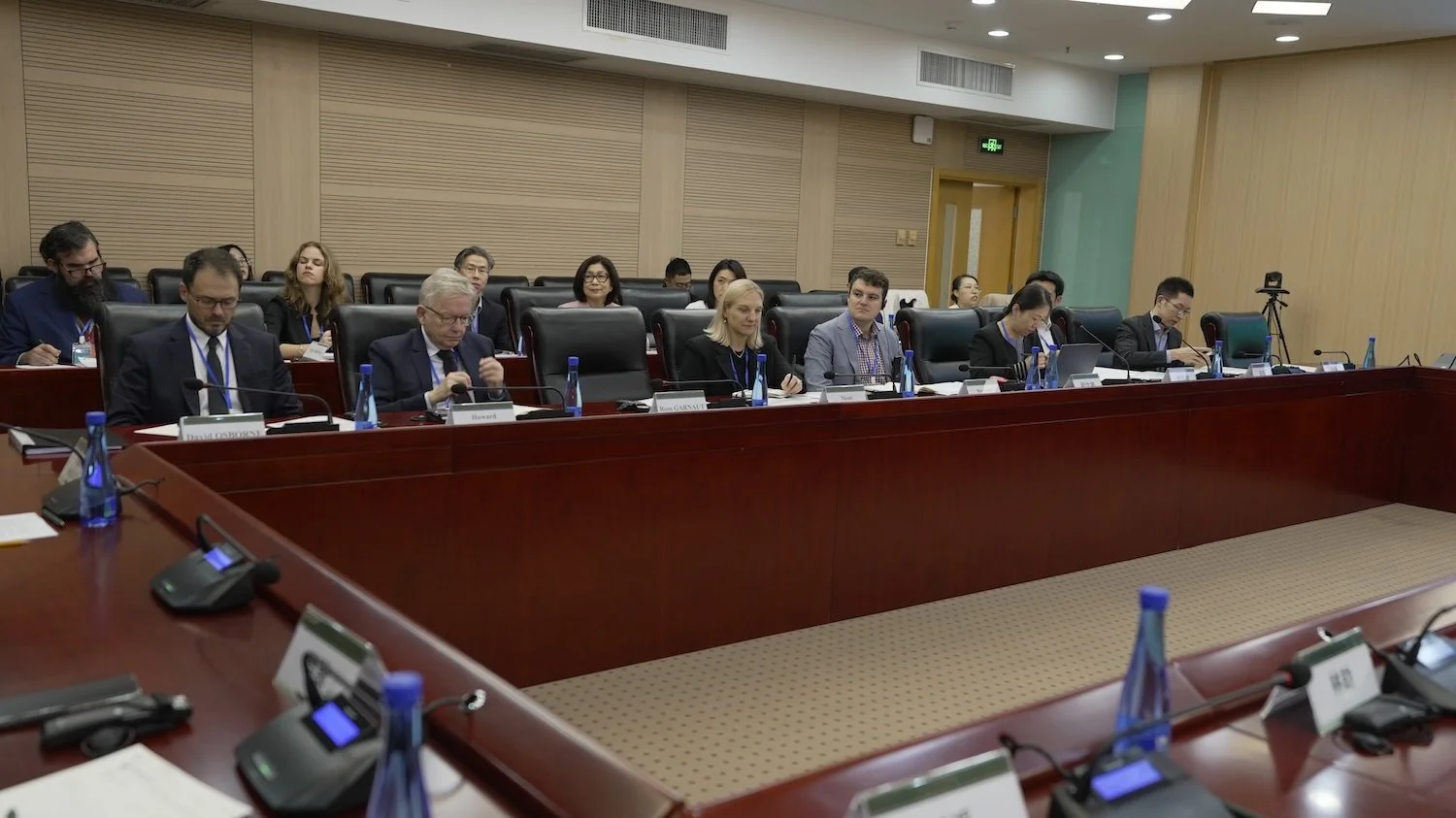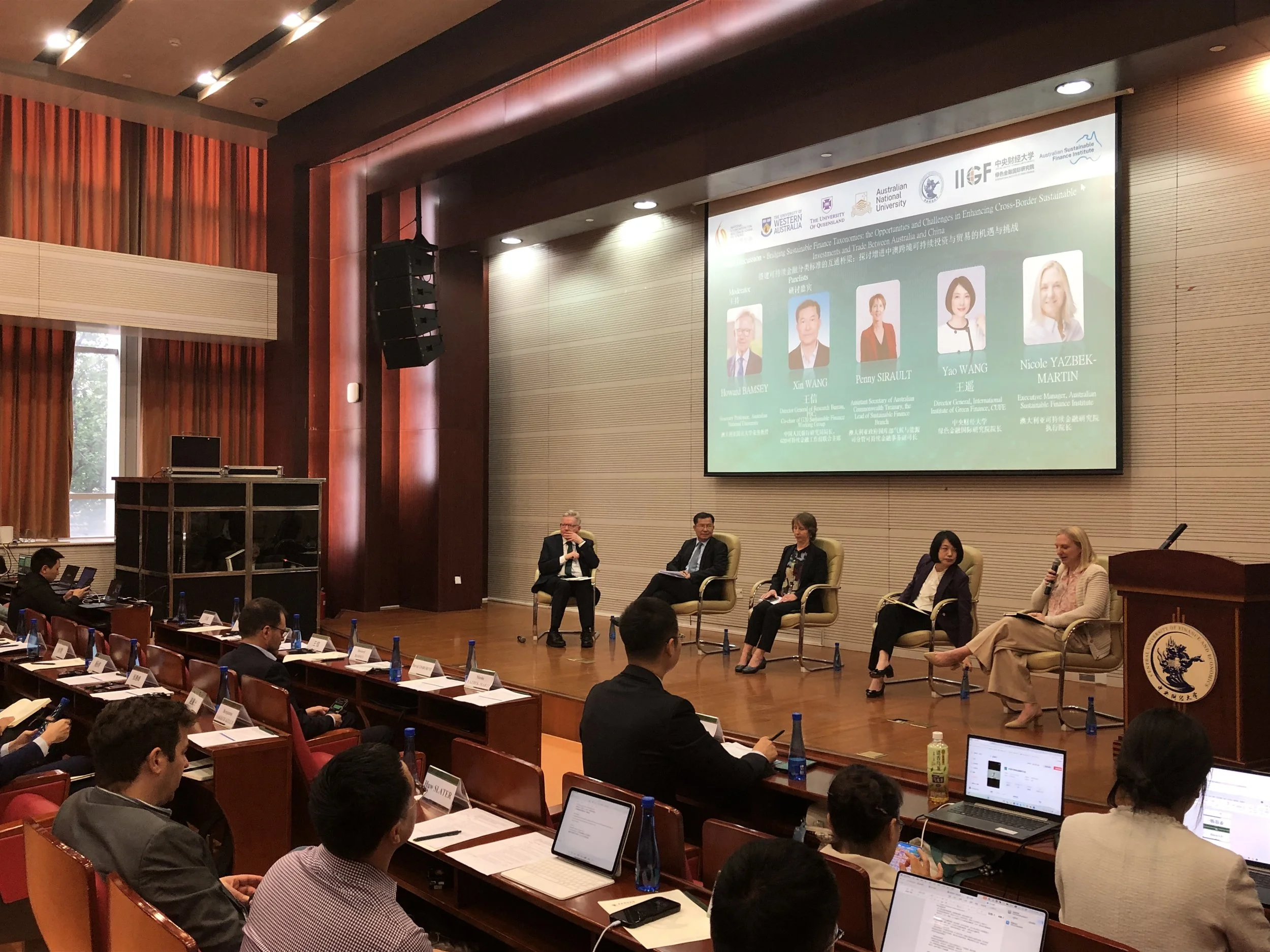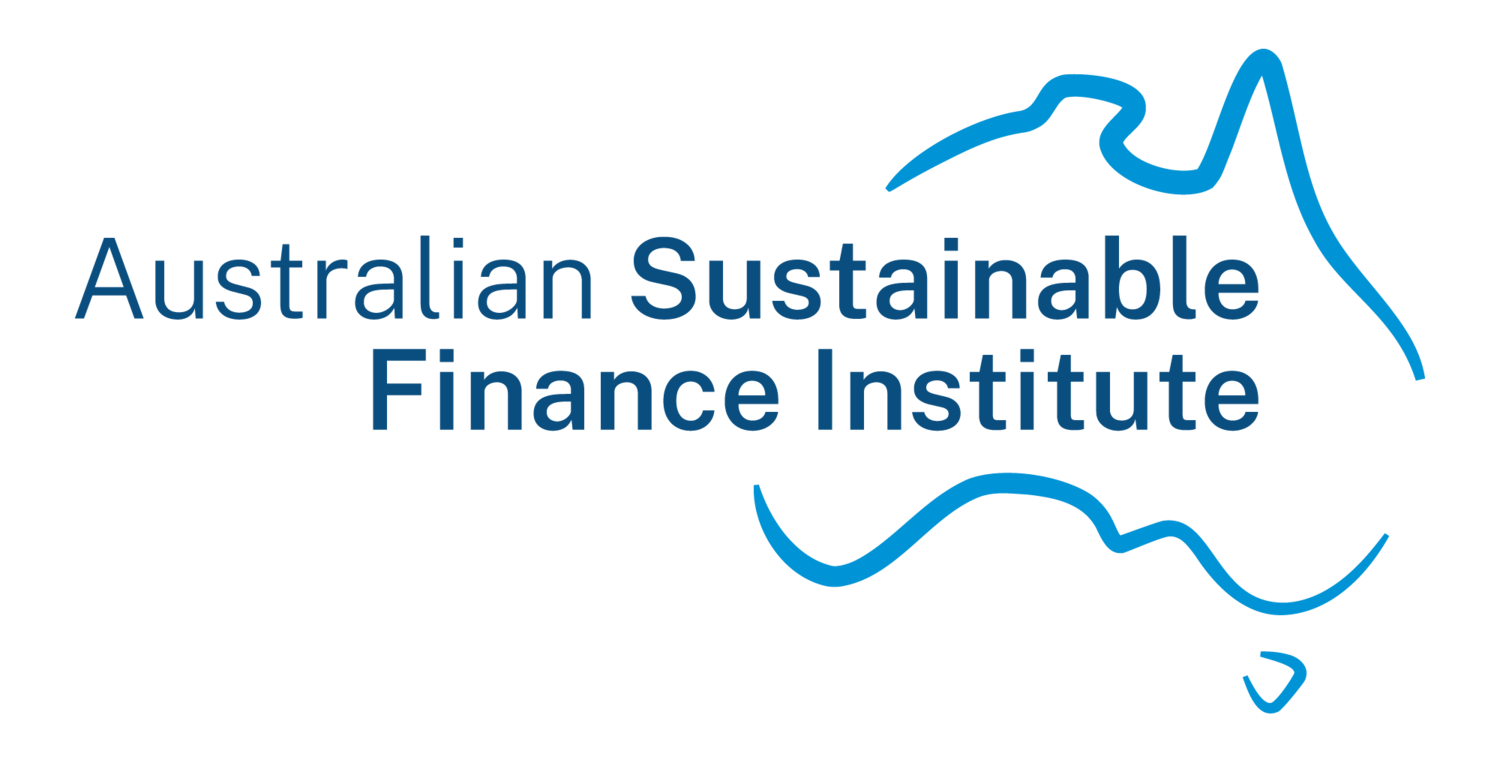Speaking the same language: Why Australia and China must align finance to unlock green capital flows
Expert panel and workshop discussions highlight the role of taxonomy alignment, transition finance and private capital in driving resilient trade and investment between Australia and China.
Speaking the same language in sustainable finance is about more than definitions, it’s about unlocking cross-border capital flows by making frameworks comparable.
This was the focus of ASFI’s recent visit to Beijing, for an expert panel session and workshop discussion on 11-12 October 2025.
Senior representatives from Australia and China met over two days to examine how aligning sustainable finance frameworks can support international investment, and in doing so, strengthen the foundations of bilateral trade and economic resilience.






Alignment is vital for investor confidence
The program was co-hosted by the Central University of Finance and Economics’ International Institute of Green Finance, the University of Western Australia, the University of Queensland, the Australian National University (ANU) and the Australian Sustainable Finance Institute (ASFI). It was funded by the National Foundation for Australia-China Relations (NFACR), an Australian Government initiative to promote and coordinate enhanced cooperation between Australia and China in support of Australia’s national interests.
“Australia and China share deeply complementary economies and a long-standing trade relationship,” said Nicole Yazbek-Martin, Executive Manager at ASFI.
“As both countries decarbonise, their trade relationship will evolve from traditional commodities toward critical minerals, green iron, and other low-carbon supply chains.”
“Interoperability lowers the cost of capital and widens investor pools, giving both Australia and China access to deeper, more competitive funding for their transition.”
Expert panel sets the tone
The program opened with an expert panel – Bridging Sustainable Finance Taxonomies: Opportunities and Challenges for Cross-Border Investment and Trade – moderated by Honorary Professor Howard Bamsey from ANU.
The session featured:
Xin Wang, People’s Bank of China, Co-chair of the G20 Sustainable Finance Working Group
Penny Sirault, Assistant Secretary, Australian Treasury
Yao Wang, Director General, International Institute of Green Finance
Nicole Yazbek-Martin, Executive Manager, ASFI
Panellists unpacked lessons from taxonomy development, the role of transition finance in hard-to-abate sectors, and why interoperability is essential to mobilise private capital at scale. They also reflected on the emerging investor use of taxonomies and the potential for bilateral alignment to influence global standard-setting.
“Finance is a universal language, but we need to make sure we’re speaking it in the same way, says Yazbek-Martin.
“Aligning our taxonomies and transition frameworks gives investors the clarity and confidence to deploy capital into credible opportunities on both sides of the relationship.”
Workshop deepens the dialogue
On day two, a closed-door workshop drilled into three themes:
Taxonomy interoperability, including alignment with international initiatives.
Transition finance frameworks for sectors such as steel and mining.
Opportunities for sustainable investment to underpin new trade flows, including Australia’s potential to supply low-emissions iron for China’s green steel industry.
The Beijing workshop follows an initial roundtable in Canberra earlier this year and will be complemented by further workshop in Hong Kong later in 2025. Outcomes will inform a suggested roadmap for bilateral cooperation on sustainable finance, with a focus on:
Interoperability
Transition finance and;
Green exports
These sessions show how speaking the same language – through interoperable sustainable finance taxonomies and transition finance frameworks – can enable credible investment, strengthen bilateral cooperation, and position both countries as leaders in the global green economy.
